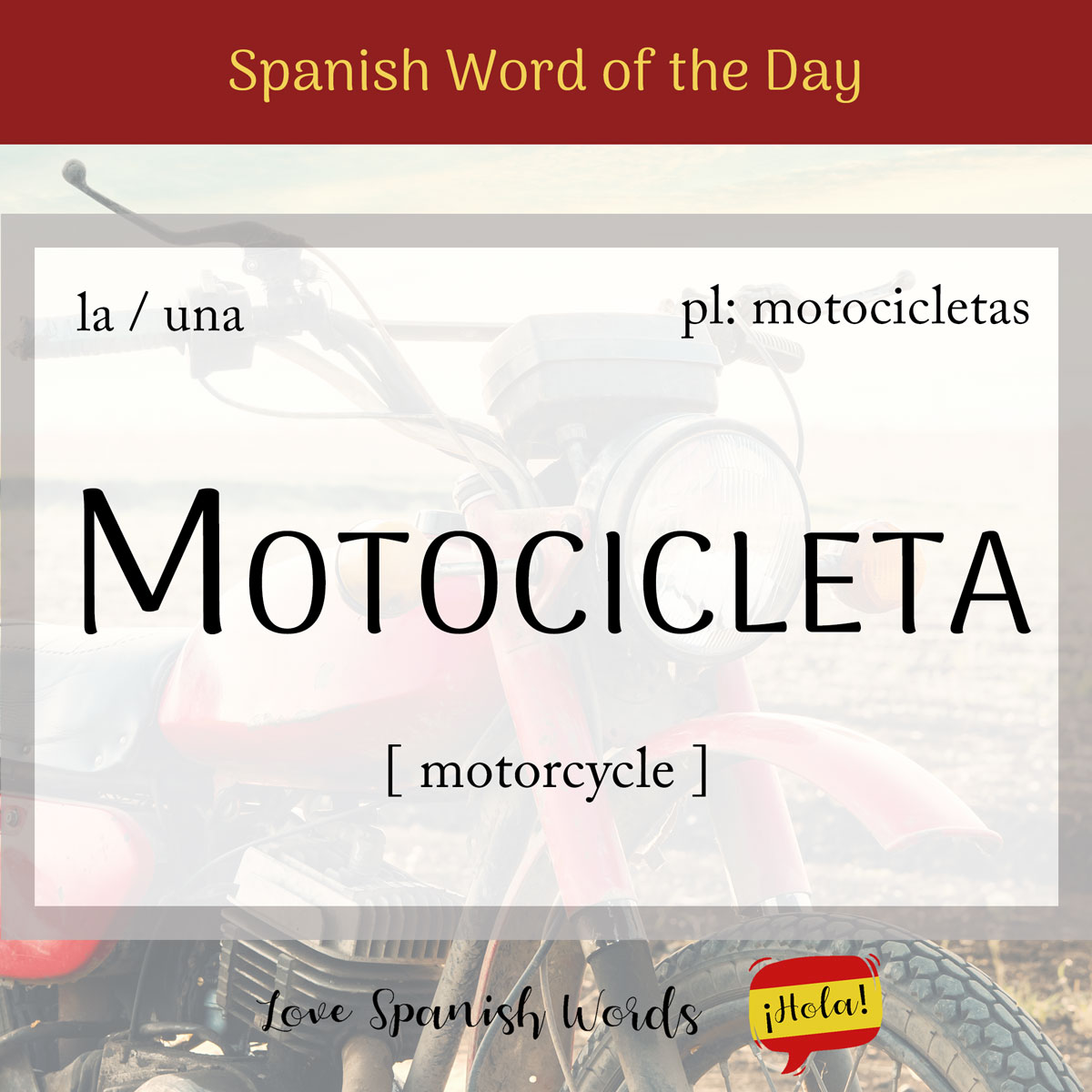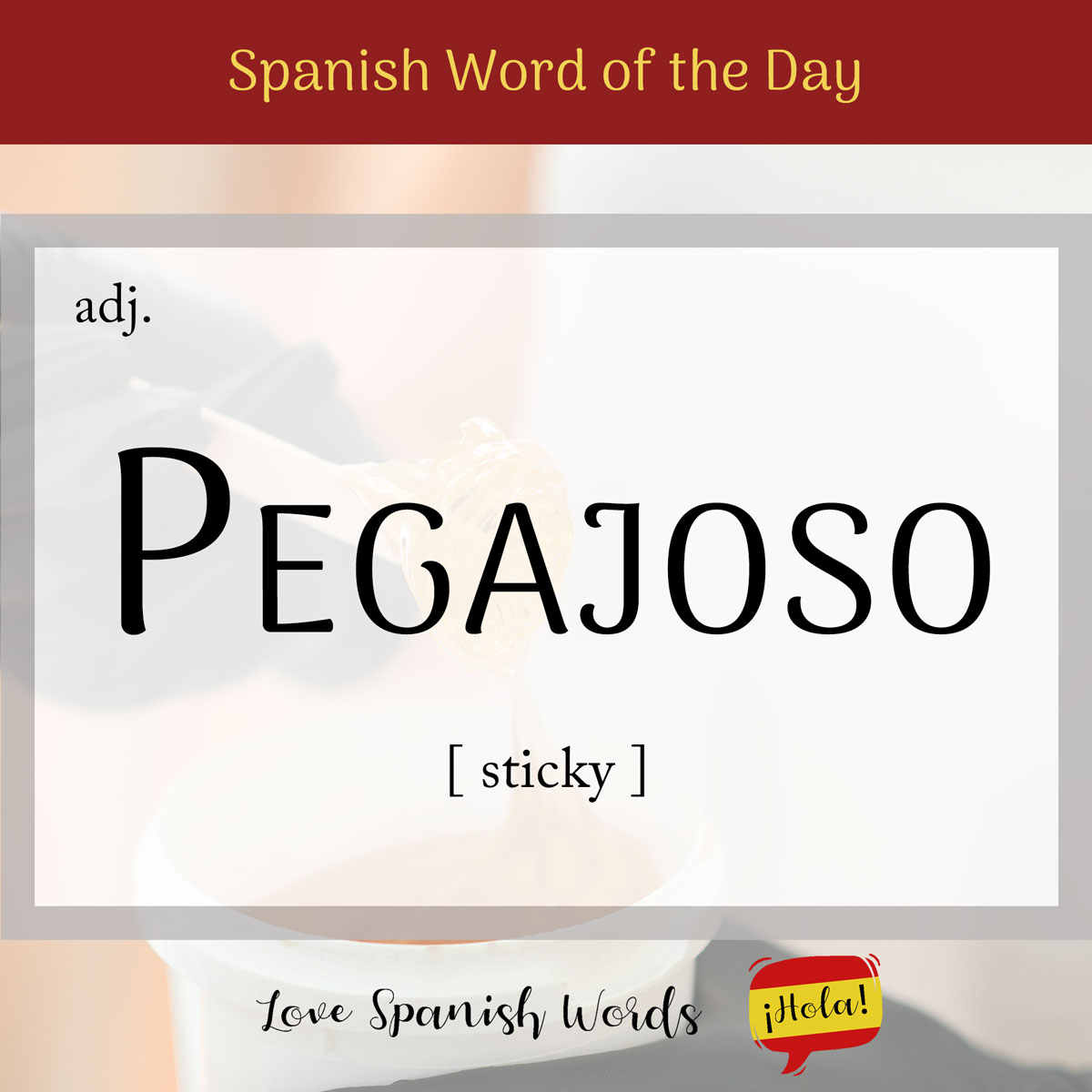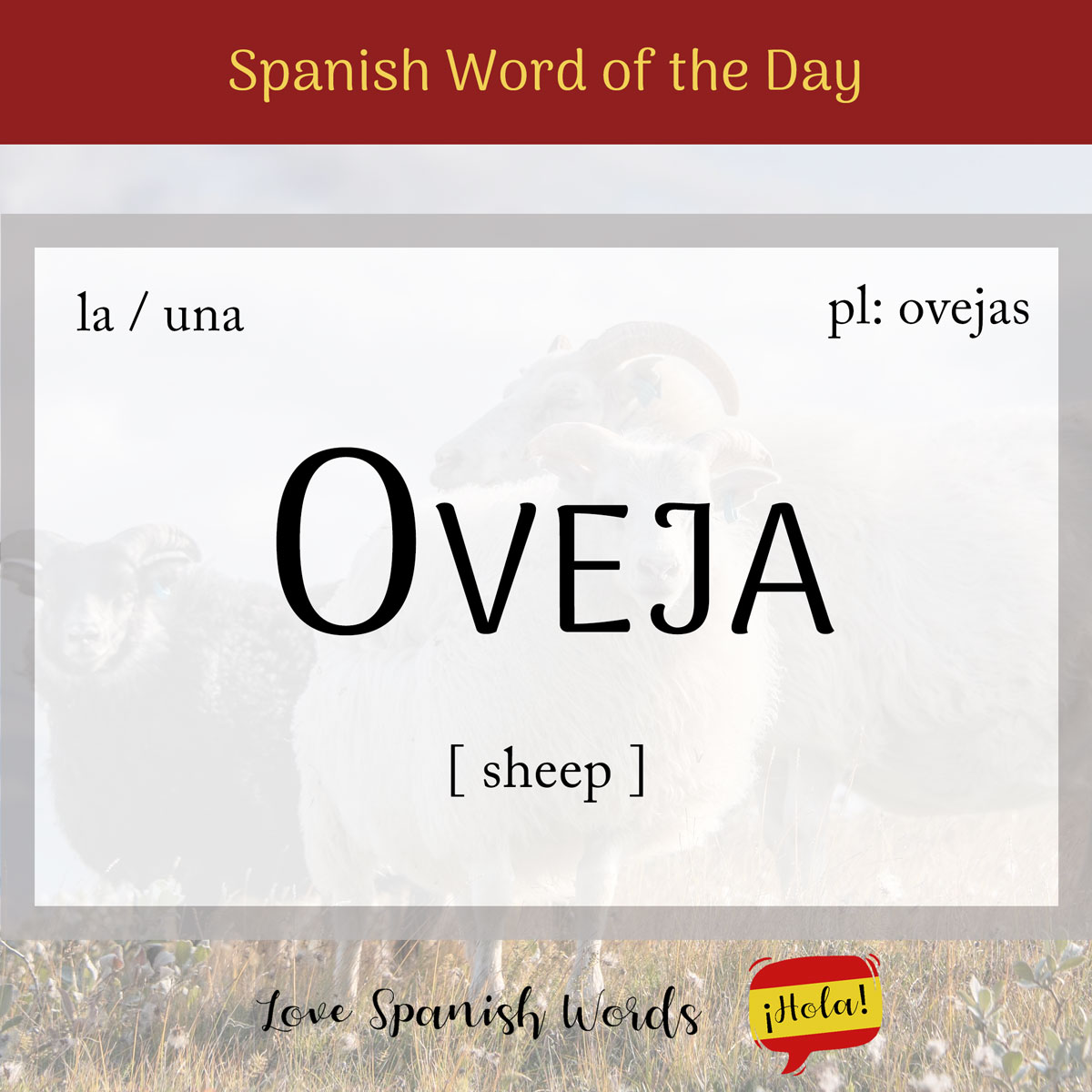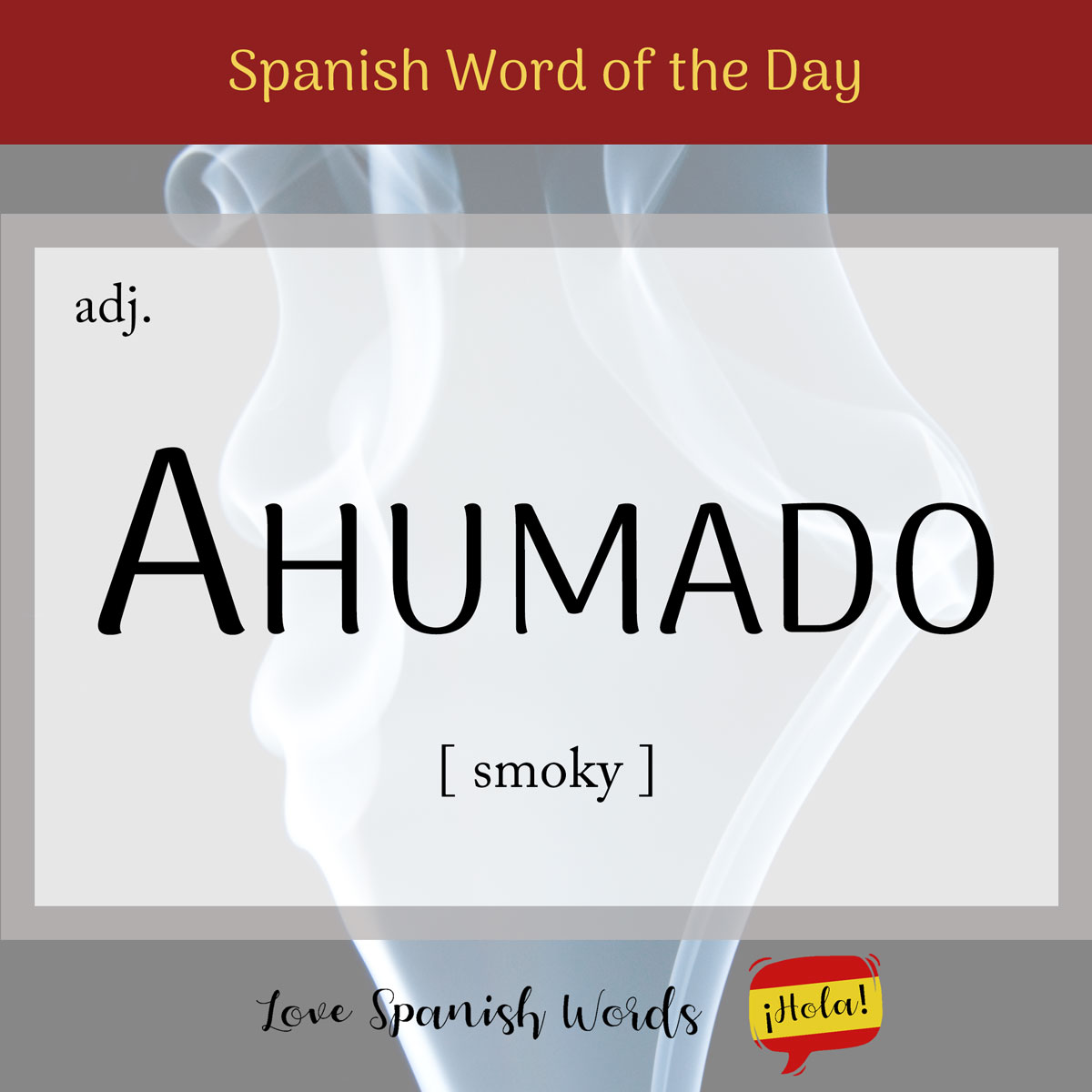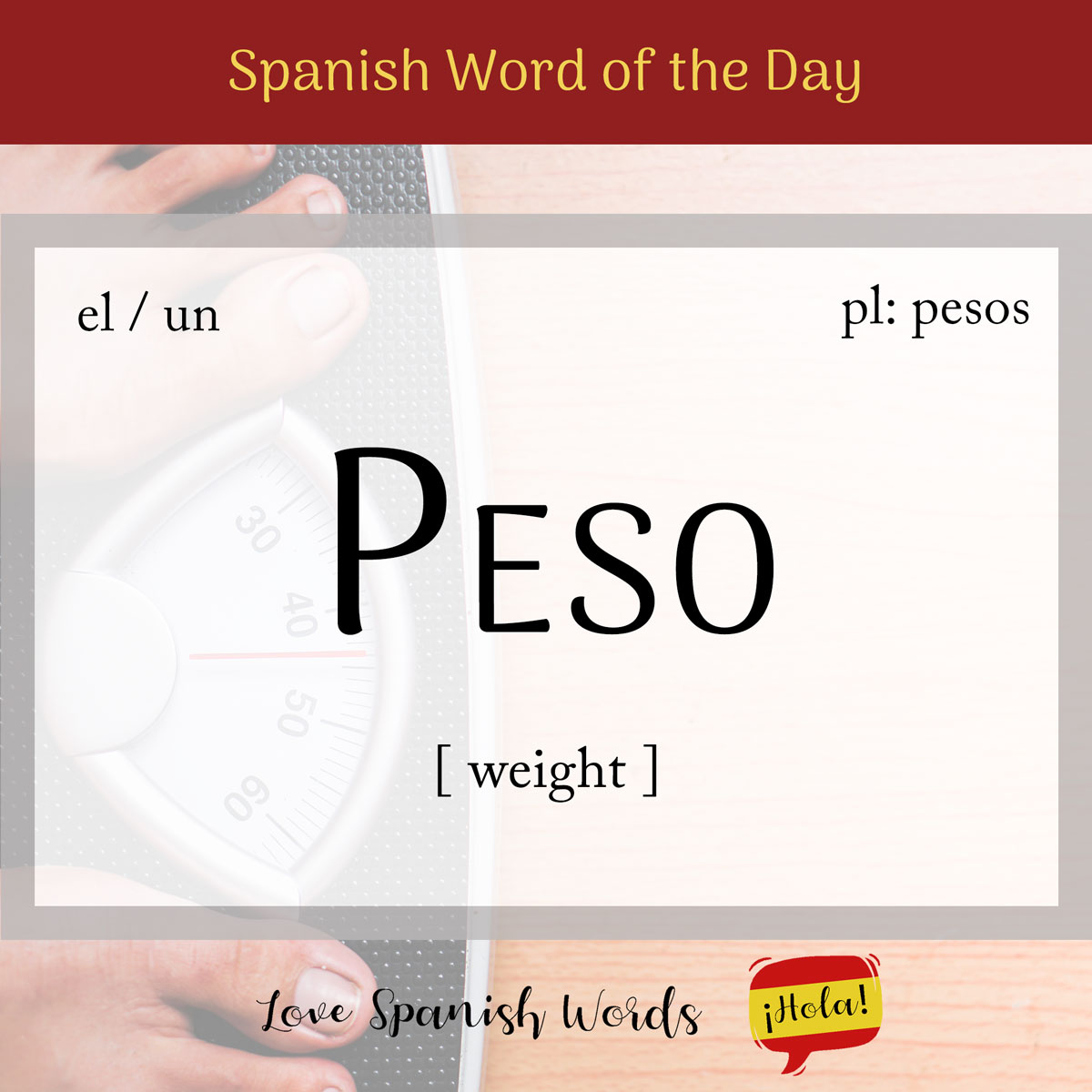Spanish Word of the Day: Motocicleta (motorcycle)
The word motocicleta is the combination of two words, motor which means engine in English, and cicleta which is taken from the Spanish word bicicleta, meaning bicycle. The words combined refer to a bicycle powered by a motor. Looking deeper into the etymology, we know the word motor derives from Latin, which means mover (to …

